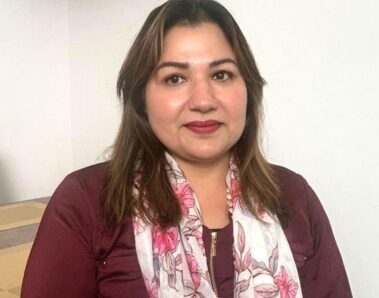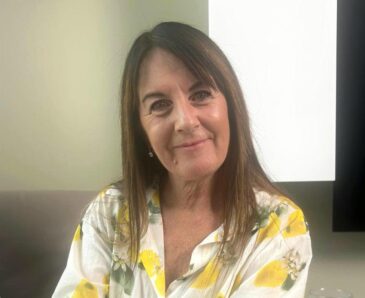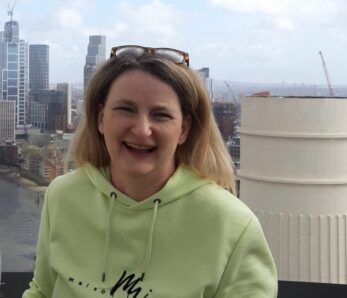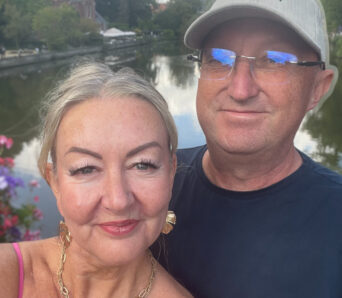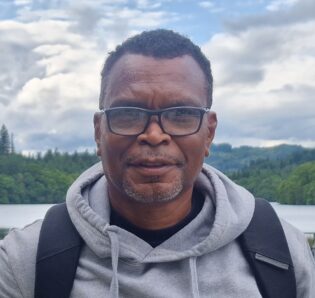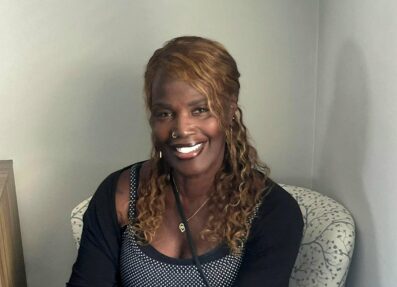26 years into her fostering journey with no sign of stopping soon, Jenny talks about her experiences from the last two and a half decades.
There were a few factors that contributed to Jenny and Steve’s interest in foster care. Formerly a career advisor in a local school, Jenny had a number of conversations with local children about fostering, and this really put it on the map for her as a career choice. Some of the children at school had challenging behaviour and needed extensive support.
On top of this, Jenny herself was adopted and a ‘looked after child’, she said: “I wanted to use my experiences positively to really make a difference to those who needed it most. I was a mum at home anyway, with time where I could offer a child a home. As well as my time, I could give them opportunities, and a chance.”
Since 1995, Jenny and her husband Steve have been providing long-term foster care to children from varying backgrounds, including siblings and children with challenging behaviour. Jenny explained about their foster journey: “Instead of having hundreds of children that come and go, we have had them stay long-term. This could be 10 years or more, and sometimes they even stay after they have turned 18, which is just fantastic.
“We are nurturing, family-orientated and inclusive. I think all children need that, then they can develop trust and we can work on all of the other things that they need support with.”
Jenny has supported children from a diverse range of cultures, she explained: “We have supported children from Afghanistan, Eritrea and Columbia. In my house, it is open and about embracing different things and having choices. There is so much out there for foster parents now, and so much you can find online to help with children [from different ethnic backgrounds]. Education, research and conversations have made a lot of the children really proud of their heritage and culture.”
Jenny continued: “We always want to make the children feel comfortable that they can do whatever is ‘normal’ to them, whether that’s attending the mosque, praying, celebrating religious festivals, socialising with peers or eating the food that they are used to. I talk a lot about food because we love it, but actually, it is a great way to communicate. We sit around the table and we talk in a way where topics naturally come up in conversation and we can have these really good discussions without it all being so intense. On top of that, as a family, we have learnt so much about life, children, the world, and it makes you have this different level of respect.”
It’s not just Jenny and her husband who have been supporting foster children in their home for the last 26 years, but their daughter has been there for most of the journey too. About her daughter’s ongoing involvement and support, Jenny said: “My daughter was my only child, but she has expressed her gratitude for us fostering over the years. She always had company growing up and was able to be more empathetic towards children at school who were struggling. We know as a family that we have a home, a lot of time and a lot of love, and we all wanted to be able to share that.
“My daughter is now a social worker but continues to be involved with the children in our care. For Christmas once, she bought me a DNA testing kit, and everyone was so interested to see it! Doing it myself in front of the kids encouraged them to be interested in their own backgrounds and cultures without fear.”
Being a foster parent, although extremely rewarding, is not without its challenges. Jenny talked about the challenges she has faced throughout her time as a foster parent: “You take on so much on a daily basis, you are trying to contain it all for that young person, hold it, manage it. And in a way, you take that from them. The difficult bit is having to be able to get rid of it because otherwise, it can be exhausting.”
Jenny continued: “I don’t think that people really understand what we do. If you are a therapist or a social worker, you get to go home at the end of the day. But we are here 24/7, and of course that’s our choice! We want to do that! But it is so important to recognise that it is tiring. We are lucky enough to have support from therapists who support us as foster parents, as well as the children.”
Jenny and her husband have been working with ISP for many years, she said: “Our experience with ISP has been excellent. We knew from the very start the director of the company fostered children herself, so she knew exactly what foster kids needed. She set up a school, she set up therapy, she set up support functions, and ISP carries all of that on today.
“The support and training from ISP is great, the services for the children are really good and there is continued recognition for the foster parents. Everyone at the centre is supportive, helpful and inclusive – and all of my foster children feel that today, and my daughter felt it too whilst she was growing up.”
According to Jenny, ISP have provided a very inclusive, ongoing training programme which over the years has covered religious holidays, black history month, discrimination, social issues and so much more, all of which helps with looking after children from any background.
It’s unsurprising that, when approaching your third decade in fostering, you have more than one stand out moment. Jenny recalls amazing milestones that left her in tears, and little victories that may seem small to some, but are monumental when you know what has gone on before.
“One of the most inspiring children we looked after was a girl who came from a really violent background. She stayed with us until she was 20 in the end, but she’d been through a really difficult time. Now, years later, she has two children of her own and is truly a fantastic mother” Jenny started.
“She often says things like ‘Jenny, if it wasn’t for you and Steve I don’t know where I’d be…’. I am so grateful and moved by her acknowledgement. But I just say to her, ‘we gave you a secure base, nurture, security, and all the tools you need’. Often, it is just giving them the skills they need to allow them to sort out all of the painful stuff and move forward. I couldn’t be prouder of how good a mother she has become”, she said.
There is currently a shortage of foster carers across the UK, and Jenny implores people to get involved where they can. She said: “There are so many children that need security, safety and one to one time. It is so worthwhile and rewarding.
“People forget that this is not an easy process, but you have the training and full support. I think as a family there really is so much that you can get from it.”
When asked what advice she would give to anyone looking to get into fostering, Jenny said: “You need a sense of humour, and you need the time. This is not a part-time job. It is full-time, and those children need to be part of your family. They probably need you more than your own children do to be honest. So with that, patience, humour and time.”
Fostering case studies
Speak to our team today
Whether you’re looking for more information or you’re ready to apply, we’re here to help you on your journey.
Enquiry Form
The company takes the requirements of GDPR seriously in ensuring the privacy and lawful processing of personal data provided to us by you. Please view our privacy notice which explains how the company will manage and use your personal data. This site is protected by reCAPTCHA and the Google Privacy Policy and Terms of Service apply.
Please make sure you read our terms and conditions because you’re agreeing to them by submitting an enquiry. It’s also worth reading our privacy policy and cookies policy so you understand how we collect and use your personal data.
